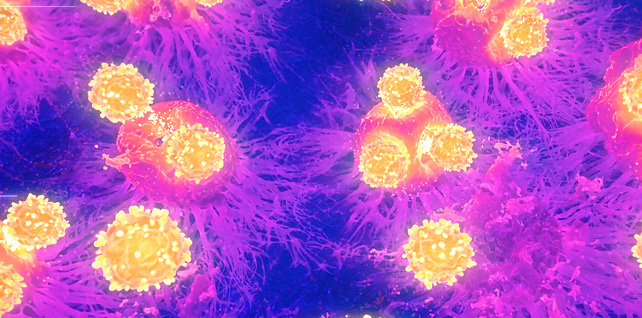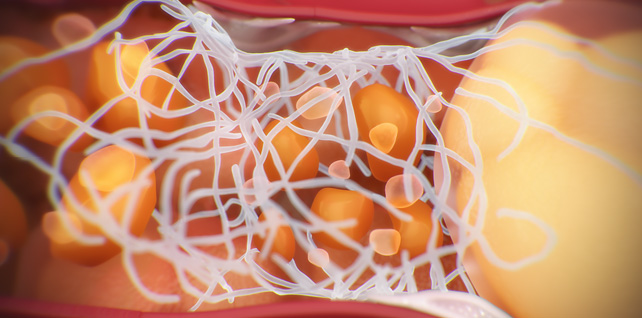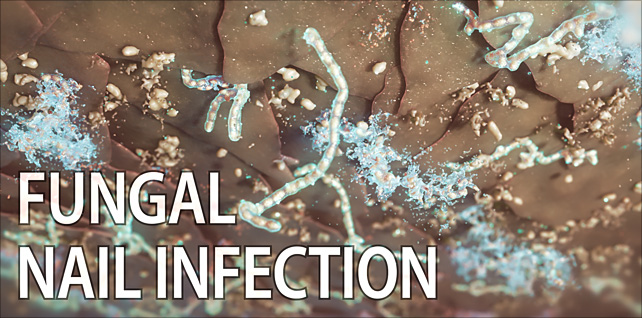
Cytotoxic T cells targeting tumor cells | immunotherapy animation
May 03, 2022A close-up fly-through of tumor cells, and the arrival of cytotoxic t cells intent on eradicating them. Activation and proliferation of cytotoxic T cells are critical for immune-mediated tumor destruction.
A key challenge we were given for this sequence: develop a rendering approach that mimics infrared thermal microscopy imaging techniques.
Researchers have been making advancements in understanding the thermal behavior of cells – for example, the ability to read the signatures of tumor cells due to their higher metabolism – in order to be used alongside existing histological analysis methods.
Tagged: biology, biomedical communications, biotechnology, cancer cells, cytotoxic T cells, fluorescence microscopy, hybrid medical, immune cells, immunology, immunotherapy, infrared, infrared (IR) microscopy, infrared imaging in biology, infrared spectroscopy, IR imaging, IR microscopy, Killer T cell animation, Killer T cells, medical animation, microspectroscopic animation, Minneapolis Minnesota, oncology, pharma, science visuals, scientific animation, T cells, thermal, thermal imaging, thermal microscopy, tumor cells, tumor death

Non-alcoholic steatohepatitis (NASH) | NASH liver disease animation
May 16, 2022A few selected sequences we produced for a recent Medscape CME / ABIM MOC / CE symposium titled NASH 101: What You Need to Know Now
The full 2.5- minute animation was developed to be played as a visual aid when the moderator discussed epidemiology and pathogenesis.
We were asked to conceptualize and develop this visual science story. It provides insight into the pathophysiology of NAFLD and NASH, including the role of fatty acids, insulin resistance, and steatosis, as well as mitochondrial dysfunction, excess ROS production, and the stress put on the endoplasmic reticulum inside ballooning hepatocytes.
In addition, we depicted key attributes of the progression of non-alcoholic steatohepatitis (NASH) including bloated hepatocytes and the fat droplets accumulating inside, displaced cell organelles, lobular inflammation, and the scarring (fibrosis) that occurs as collagen fibers fill the spaces once cell death occurs.
In the last few years, nonalcoholic fatty liver disease (NAFLD) and nonalcoholic steatohepatitis (NASH) have become the most common causes of chronic liver disease worldwide. This epidemic is starting to parallel the epidemics of obesity and type 2 diabetes.
Tagged: biology, biomedical communications, cirrhosis, fatty acids, fatty liver disease animation, hepatocytes, hybrid medical, insulin resistance, lipotoxicity, liver animation, medical animation, medical marketing, NAFLD, NASH, NASH liver disease animation, non-alcoholic steatohepatitis, nonalcoholic fatty liver disease, obesity, science visuals, scientific animation, steatohepatitis, steatosis, type 2 diabetes

Onychomycosis & nail fungal disease
May 22, 2022This animation takes a closer look at a fungal infection of the toenail and the key attributes of its invasion, including discoloration and brittleness of the nail, striations and thickness of the nail plate, and ultimately, the presence and proliferation of fungi at the nail bed.
One of the more important aspects for this project was to create a highly detailed, diseased nail cross-section, including anatomically correct layers (dorsal, intermediate, and ventral). This would allow us to feature the delivery vehicle and transport of cosmetic and antifungal ingredients through the nail plate.
Additional key challenges for this piece included creating a 3D toe with diseased nail, particle simulations of the key anti-fungal solution ingredients and their pathway down to the nail bed, and the destruction of fungal species (including yeasts, dermatophyte molds, and non-dermatophyte molds) at the nail bed.
Trichophyton rubrum – the fungal species we see at the end – is the most common type of nail fungus.
Tagged: antifungal, cosmetic, dermatology, dermatophyte, fungal, fungal infection, fungal nails, fungus, houdini, hybrid medical, keratin matrix, medical animation, mold, nail bed, nail fungal disease, nail plate, nails, onychomycosis, pedicure, redshift, science, science visuals, scientific animation, toe fungus, toe fungus animation, toe fungus3D, toenail fungus, trichophyton, trichophyton rubrum, yeast